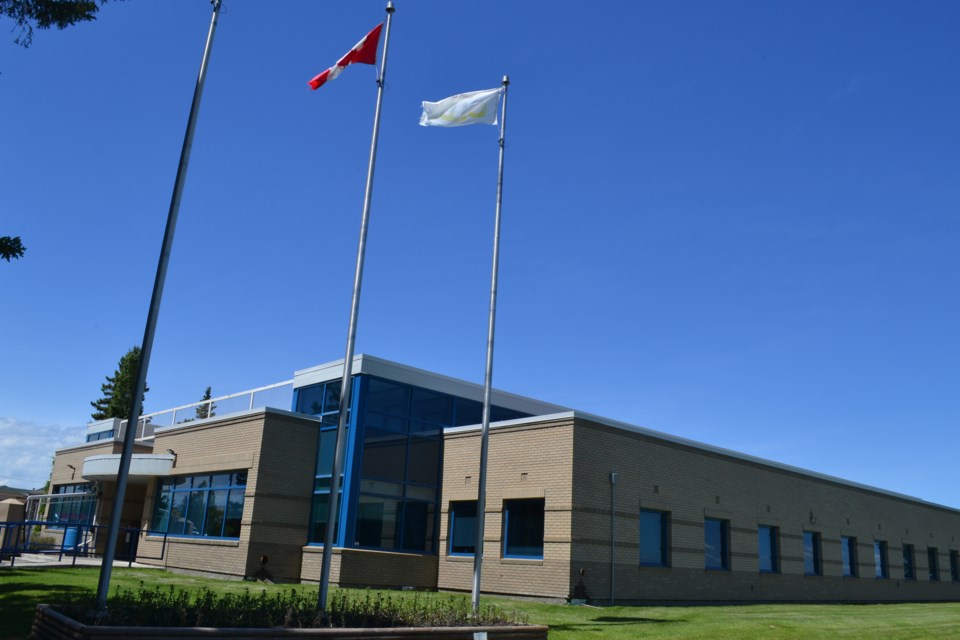OLDS — Town council has passed its 2022 Olds tax rate bylaw.
But not without objections from councillors Heather Ryan and Darren Wilson, and a counter argument by Coun. Wanda Blatz that while no one – including herself – wants to see tax increases, this one was necessary.
As was reported earlier, the 2022 tax rate bylaw calls for a two per cent tax increase.
When the bylaw was first introduced on April 11, council was told that as a result of the hike, the average residential property owner can expect to see their taxes rise $137 to $2,808 from $2,741 last year.
The average non-residential property owner can expect to see their taxes increase by $49 to $11,455 from $11,406 last year.
Finance director and interim chief administrative officer Sheena Linderman told council at that time that this year’s rates are the result of several factors.
They include inflation, increases to the value of both residential and non-residential property, the education tax, and assessments for Mountain View Seniors Housing.
Ryan voiced her intention not to support the increase.
“I do not believe that two per cent is something that I can live with, especially when you look at the assessment has gone up by 2.5 per cent, so we’re actually looking at an overall 4.5 per cent (increase),” she said.
Blatz said she understood Ryan’s position. However, she said council had no control over several cost increases such as higher energy costs and carbon taxes, not to mention the factors listed by Linderman on April 11.
“I think that, as I stated earlier, my concern with this whole process is if we don’t have a tax increase this year, we don’t know in the future what assessment rate increases or decreases could be,” Blatz said.
“And I believe the cost of living, inflation, is going to continue to rise. Interest rates are now starting to rise. So I do have concerns for our residents, very much so. I feel their pain,” she added, noting she has to pay those taxes too.
While she acknowledged the increase is “definitely a hit to the pocketbook,” Blatz said, “I don’t believe that it’s unmanageable by any stretch.”
Blatz pointed out that another source of fiscal pressure is an agreement between the federal government and RCMP for retroactive pay hikes.
In August, RCMP members agreed to a six-year deal, which includes a 23.78 per cent pay increase for RCMP members retroactive to 2017.
Under that deal, municipalities are required to make a one-time payment to members to cover the cost of pay increases from 2017 to 2021.
Linderman confirmed the Town has set aside some money for that back pay, but said it’s still unclear how much the final figure will be.
In an email to the Albertan, she wrote, “The Town (of Olds) has not received a formal invoice or letter stating the amount owed. It has been estimated it to be around $280,000. To date, the Town (of Olds) has placed $200,000 into reserves, however until the actual amount is identified, there will be no more added to reserves.
“The retroactive contract signed by the RCMP includes all members. The Town (of Olds) is only responsible for the members that are under contract to the Town of Olds.”
Mayor Judy Dahl echoed Blatz’s comments and the factors listed by Linderman.
She stressed that council and administrative staff worked hard to keep the hike as low as possible.
“I have to say we do a very good job of budgeting,” Dahl said. “Our administration does an excellent job of budgeting and we go over that budget several times to end up where we are.”
Wilson agreed with Ryan’s position and the points made by Blatz and Dahl.
"Certainly everyone around this table knows the amount of time that council has invested with administration’s support in terms of scrubbing the budget, validating the budget, vetting the budget,” he said.
He also said in the long run, the higher assessments are "a good thing” for property owners.
Wilson predicted that things are going to continue being fiscally tight because he believes it’s likely that the provincial government will further cut funding to municipalities.
On top of that, Wilson noted that in order to keep this year’s tax hike as low as possible, the municipality dipped into its tax stabilization fund.
As a result, he estimated that money in that fund will drop from about $290,000 to about $128,000 and he was unclear on what measures will be taken to replenish it.
As a result of all those factors, Wilson said, big decisions will have to be made in the coming months to cope with the situation.
“It’s important for the ratepayers and citizens of Olds to know that with service level discussions, it is a challenge to be able to maintain those service levels without tax increases,” Wilson said.
“So something has to give there. Either we compromise where we can on service levels or tax increases will become incremental going forward, with all the other pressures that we’ve acknowledged, like inflation, like reduced funding.
“I don’t necessarily have an issue with raising taxes, but we need to understand what’s driving those taxes and I do still think there are some expensive – some programs that we can take a further look at. I don’t want to harp on seasonal student hiring, but there are areas I think where we have an opportunity to mitigate tax increases.”



